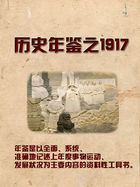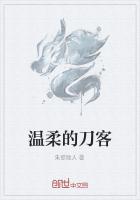In the year 1073 the College of Cardinals elected a priest by the name of Hildebrand, the son of very simple parents in Tuscany, as Pope, and he took the name of Gregory VII.
His energy was unbounded. His belief in the supreme powers of his Holy Office was built upon a granite rock of conviction and courage. In the mind of Gregory, the Pope was not only the absolute head of the Christian church, but also the highest Court of Appeal in all worldly matters. The Pope who had elevated simple German princes to the dignity of Emperor could depose them at will. He could veto any law passed by duke or king or emperor, but whosoever should question a papal decree, let him beware, for the punishment would be swift and merciless.
Gregory sent ambassadors to all the European courts to inform the potentates of Europe of his new laws and asked them to take due notice of their contents. William the Conqueror promised to be good, but Henry IV, who since the age of six had been fighting with his subjects, had no intention of submitting to the Papal will. He called together a college of German bishops, accused Gregory of every crime under the sun and then had him deposed by the council of Worms.
The Pope answered with excommunication and a demand that the German princes rid themselves of their unworthy ruler.
The German princes, only too happy to be rid of Henry, asked the Pope to come to Augsburg and help them elect a new Emperor.
Gregory left Rome and travelled northward. Henry, who was no fool, appreciated the danger of his position. At all costs he must make peace with the Pope, and he must do it at once. In the midst of winter he crossed the Alps and hastened to Canossa where the Pope had stopped for a short rest. Three long days, from the 25th to the 28th of January of the year 1077, Henry, dressed as a penitent pilgrim (but with a warm sweater underneath his monkish garb), waited outside the gates of the castle of Canossa.
Then he was allowed to enter and was pardoned for his sins. But the repentance did not last long.
As soon as Henry had returned to Germany, he behaved exactly as before. Again he was excommunicated. For the second time a council of German bishops deposed Gregory, but this time, when Henry crossed the Alps he was at the head of a large army, besieged Rome and forced Gregory to retire to Salerno, where he died in exile. This first violent outbreak decided nothing. As soon as Henry was back in Germany, the struggle between Pope and Emperor was continued.
The Hohenstaufen family which got hold of the Imperial German Throne shortly afterwards, were even more independent than their predecessors. Gregory had claimed that the Popes were superior to all kings because they (the Popes) at the Day of Judgement would be responsible for the behaviour of all the sheep of their flock, and in the eyes of God, a king was one of that faithful herd.
Frederick of Hohenstaufen, commonly known as Barbarossa or Red Beard, set up the counter-claim that the Empire had been bestowed upon his predecessor "by God himself" and as the Empire included Italy and Rome, he began a campaign which was to add these "lost provinces" to the northern country. Barbarossa was accidentally drowned in Asia Minor during the second Crusade, but his son Frederick II, a brilliant young man who in his youth had been exposed to the civilisation of the Mohammedans of Sicily, continued the war. The Popes accused him of heresy. It is true that Frederick seems to have felt a deep and serious contempt for the rough Christian world of the North, for the boorish German Knights and the intriguing Italian priests. But he held his tongue, went on a Crusade and took Jerusalem from the infidel and was duly crowned as King of the Holy City. Even this act did not placate the Popes. They deposed Frederick and gave his Italian possessions to Charles of Anjou, the brother of that King Louis of France who became famous as Saint Louis.
This led to more warfare. Conrad V, the son of Conrad IV, and the last of the Hohenstaufens, tried to regain the kingdom, and was defeated and decapitated at Naples. But twenty years later, the French who had made themselves thoroughly unpopular in Sicily were all murdered during the so-called Sicilian Vespers, and so it went.
The quarrel between the Popes and the Emperors was never settled, but after a while the two enemies learned to leave each other alone.
In the year 1278, Rudolph of Hapsburg was elected Emperor.
He did not take the trouble to go to Rome to be crowned. The Popes did not object and in turn they kept away from Germany. This meant peace but two entire centuries which might have been used for the purpose of internal organisation had been wasted in useless warfare.
It is an ill wind however that bloweth no good to some one.
The little cities of Italy, by a process of careful balancing, had managed to increase their power and their independence at the expense of both Emperors and Popes. When the rush for the Holy Land began, they were able to handle the transportation problem of the thousands of eager pilgrims who were clamoring for passage, and at the end of the Crusades they had built themselves such strong defences of brick and of gold that they could defy Pope and Emperor with equal indifference.
Church and State fought each other and a third party--the mediaeval city--ran away with the spoils.















